Vernon Hershberger: The 2013 Case of a Peaceful Farmer and a Wisconsin Court
A Farmer Criminalized, A Community Responds
A Courtroom or a Circus?
We all sat tensely in the courtroom. It had been an overwhelming week. Now, it was Friday night, May 24, 2013 approaching midnight. We watched the defendant, he had an affable way about him. For a week, he had riveted the courtroom, the courthouse, and indeed, the whole county. All eyes were on him. What would this verdict mean to him, his family, this community?
About 1:30 am Saturday morning, the jurors came out of the deliberation room. The judge gave them their instructions. Slowly, the head juror began to read the verdict.
We sat on the edges of our chairs as he read out loud.
“On count 1 we find the defendant…”
A whole week of trial led to this moment. It had been a week of disruption in this small community in Baraboo Wisconsin. Each day, crowds gathered outside the courtroom; news cameras and journalists raced around, eager to meet their deadlines. Each evening, we gathered across the street from the courthouse in the iconic Al Ringling theater–yes, THAT Al Ringling of circus fame–to be together, to share thoughts, to learn from one another.
Who was this criminal? What was the crime?
The trial was that of Vernon Hershberger, Man of God, Mennonite, farmer, husband to Erma, father to 10 children, brother, son, and friend to many. The crime: milking cows on his small family farm, Grazin Acres.
Vernon was on trial for providing milk from his cows to people nearby who wanted it, and who participated in the farming efforts.
Regardless of where we had been gathering, this trial was NOT supposed to be a circus. This was a real trial with a man’s life in the center ring.
It seemed to many of us that it wasn’t *just* Vernon on trial, but a way of life. Our way of life. The implication was strong–if you want local food, fresh unprocessed food: “We are watching you. We will find a way to prosecute you. You may not choose your food.”
This case began in 2010. The Wisconsin Department of Trade and Consumer Protection (DATCP) asserted that Vernon could not milk his cows and provide that milk to people who wanted it, people he provided to for years. They told him to stop. Vernon calmly said “No.” The regulators returned and poured blue dye in his milk tank and forced him to dump thousands of gallons of milk. He kept milking his cows and kept steadfastly feeding his community. The agents for the department seized and detained all his dairy products. Vernon peacefully reclaimed the food and continued feeding his community. Thus began DATCP’s 3 year saga of enforcement and bullying against a peaceful farmer, his family, and the community.
You see, perverse Wisconsin state laws and regulations had no provision for Americans who want unpasteurized milk. They insisted that all farmers needed to have a license to milk cows and all milk needed to be pasteurized. (Do I need to mention how antithetical this is to the ideals of a free country? Can you imagine being criminalized for making your own dinner? Or having a friend over for lunch?)
The state chose to prosecute Vernon criminally for his perceived transgressions.
What ensued against Vernon–and indeed against every American who cares about the principles of limited government, or the simple ability to choose their own food–was the culmination of years of senseless policy against small farmers in America.
One can only begin to imagine the inner fortitude and faith that gave Vernon and Erma the strength to stand on the conviction that upheld their quiet determination.
For those who knew the family, we knew that they prayed daily for God to bring them through this ordeal free to farm, but if not, that they would not lose their faith, nor would they turn away from their sacred duty to be loving stewards of God’s creation.
They chose their path. They would show their love for this community, not in words, but in deed and truth.
The reaction from the community was a blend of humanity and courage.
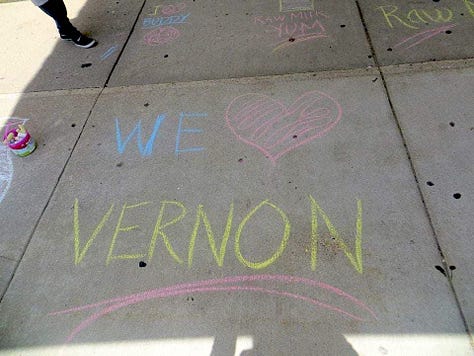
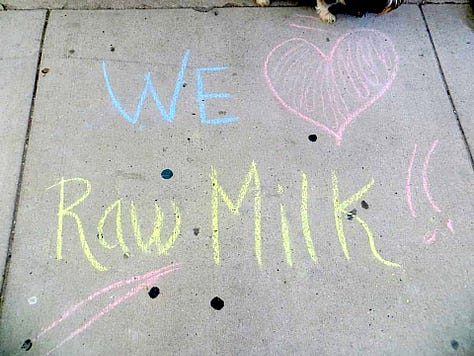
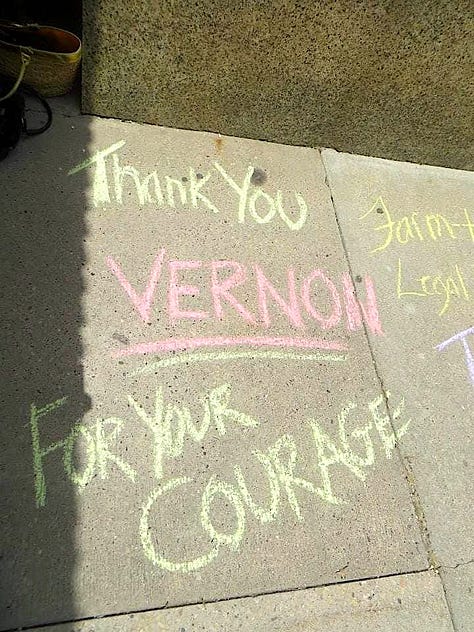
Would that courage prevail?
Vernon was the one on trial. No one could change that. Those of us who cared about this issue could support him in ways that would make a favorable outcome more likely. This was a precedent-setting case. We knew what was hanging in the balance. At stake was the most basic, fundamental right to procure the foods of our choice peacefully, through direct involvement in our food systems.
For about 10 years preceding the enforcement action against Vernon, the United States Federal government conducted armed raids against raw milk farmers in the “Land of the Free.” The Department of Justice prosecuted small farms for providing clean, fresh milk to their communities. The very character of America was in question as innocent citizens and guests of America were caught in the dragnet of draconian policies. Many of us could not get the food we needed for our families without ourselves facing the threat of investigation or prosecution.
This was a time of trial and tribulation for many.
Most of us who grew up in America are used to hearing stories about the courage of Rosa Parks, Martin Luther King, Jr., the Freedom Riders, and civil rights leaders who stood up for justice. But most of us probably didn’t grow up imagining that we would be called into some of the same roles or what that might look like if we were.
Indeed, America has a proud history of civil disobedience. We are a country that saw significant change from the courage of a few people–at different times–who resolutely stood up against unjust laws at great risk to themselves. The very founding of this nation was caused by a small group of farmers who resisted a ruling force that wished to control them. Civil disobedience runs proudly in our blood.
Vernon and Erma’s choice was an answer to our prayers. Our choices were an answer to their prayers.
A “village” benefited from Vernon’s lifelong farming expertise. As more Americans moved off the farms, fewer people retained the skills needed to be productive farmers. The people around Grazin Acres participated, learned, grew, and understood the symbiosis between farmer and buyer, land and animals, soil and water, bodies and nutrition. As such, these were not just charges against Vernon. They were an assault against all of us. And together, we must address them, each of us taking our own role just as each tree, grass, and animal takes their own role in the ecosystem. While the farmer nourishes the soil, bringing balance to the microbial life within, the community nourishes the farmer in an intricate, delicate dance of interdependence.
An ecosystem emerges
The strength of an ecosystem shows up in its resilience. That is, the system’s ability to adapt to external challenges. We can see the strength of a human community–be it a family, a social network, a city or even a society–in our ability to adapt to change. What did that look like for us? How could a small, localized group of people dependent on the production of this farm, adapt to the unwelcome intrusion of criminal charges against their small operation?
More importantly, how would the broader network of local food and food freedom advocates rise to this challenge? Small regulations, held up by court precedent, could affect all of us no matter how far geographically we were from Baraboo Wisconsin. This was a call to action for all of us.
How could we collaborate? What happens if the charges stick? What will happen to our food sources? What will happen to our communities?
What did we want the world to see and hear from this trial? What did we want people to learn?
These questions swam in my head as I reached out to Vernon. Until this moment, I was not a member of the farm. I was 900 miles away, but facing many of the same challenges in my area.
The simple answers were easy: I knew we all wanted Vernon acquitted on all charges, free to go home and farm and feed people. We envisioned our society’s acceptance of an American precept: that farmers all around our beloved country could provide clean, fresh milk to their surrounding communities without the threat of prosecution. We wanted the armed raids against America’s small farms to stop immediately.
Equally important, we wanted to see a shift in how Americans think about food production and food rights. We wanted food freedom to be thought of as normal again, returning to a community-centric food system.
We saw in this small microcosm our country slipping between our fingers. What did it mean that an honest, Godly farmer on the outskirts of Baraboo, Wisconsin was criminalized for milking his cows and feeding his community? The very men and women who nurture the earth and coax from the soil enough nutrition to feed us are sacred stewards. Throughout history, their role in our communities remained central, respected, even revered. And yet here we were, in 2013 Small Town America, and this way of life was on trial. We knew the implications of this: our health was on trial. We no longer got to choose our food. Our autonomy was gone. It meant that whoever controlled the food supply controlled us.
Vernon’s community embraced my participation. I’d been through a few of these ordeals before and knew I had invaluable expertise to contribute to the ecosystem. Many phone calls later, several of us determined a plan of action that could work. Organizing takes planning, strategy, gathering people together, listening, writing, action. Now, it was a matter of finding the skill sets to organize effectively, fundraise what we needed, and tell our country the story of a farmer criminalized for feeding his community.
The Circus Comes to Town
My role was, perhaps, that of a storyteller-ringleader. It was my job to get people’s attention, find how their skills fit into the larger picture and share that on a national stage. I embraced that with relish. I love seeing other people’s gifts and helping those gifts shine.
Of course, we had our clowns and acrobats. We had our specialty trapeze artists and jugglers. We had the fire breathers and tightrope walkers. And they showed up!
It was also my job to tell intimate stories–stories about families, stories about food, stories about Vernon and Erma, farming, love and laughter. Our stories.
Mothers spoke up first and loudest. It became abundantly clear that this was a moment of mamas stepping up and saying “Enough! We know what is best for our children and we will do what it takes.”
And did we ever!
These were our lives, our stories, our children and ceding them was not an option.
People learned farm chores in case of Vernon’s incarceration. Others took over the computer and communications systems that kept the businesses going. Still others figured out systems to support Erma in Vernon’s absence so she would have support in raising 10 children if their father suddenly became absent.
Dedication. Contingency plans. Working and reworking logistics until they made sense. And who would remain in the courtroom, peacefully praying if Vernon went to jail, inviting upon themselves contempt of court charges to bring a larger spotlight to this issue?
Each decision came with possible consequences, certain sacrifices.
For me, it was a long time away from home, leaving my five young children with my mom, missing 2 of my babies’ birthdays.
Farmers and a Gilded Circus Theater
Upon entering for the first time, the red velvet seats of the circus theater shining in the dim light, beckoned to us. The air was a union of musty and classic, each breath drawing in the nostalgia thickly surrounding us.
It was as if the theater, exuding confidence, was seeking one more extravagant encore.
It was a rapid decision when presented with the option. Yes, I would rent out the whole theater for the week, the duration of the case. This century-old theater would prove the perfect place for people to gather each day after the trial.
The gilded walls were fantastical. One could too easily get carried away with images of grand events and shows that graced the stage of this magnificent theater. And yet here we were, salt-of-the earth farmers, mamas feeding their babies, ordinary families working hard to preserve the normalcy of a community-centric food system.
I felt the oddity of this mix of grandiosity and earthy-ness. It was the sweat and dirt of everyday hard work juxtaposed with the glamor of the exotic. But it fit.
When we go to a circus, we see the culmination of a lifetime of hard work, practice, and study that builds an acrobat. We see the daily devotion of the tightrope walkers, fire breathers, and trapeze artists without being present for the arduous hours of practice. In that likeness, every time food touches our lips, we benefit from a farmer’s lifetime of service to their craft. We are recharged by the tending of the soil, the building of nutrients, animal husbandry, and the coaxing of small plants into full grown crops ready for harvest. Most of which, we never witness.
Here we were, these two end points converging in this small, obscure town that could have been Anywhere, USA. Perhaps the ripple we made would cause noticeable change in our country?
As Vernon’s trial progressed through the week, those red velvet chairs filled every day. People talked and listened. Friendships formed. Ideas spread. We prayed and sang together, laughed and cried. We ate great food–lovingly produced, and gently harvested and prepared. We made babies giggle in their mothers arms and took turns holding them while they slept.
And, of course, we drank gallons of raw milk.
Back in the courtroom we waited
I remember it like it was yesterday. It was nearing 1:30 AM Saturday morning. We sat there tensely, waiting for the verdict. Either way, it was significant. Would we be free to eat the foods from our community producers? Or would the government we pay for further erode our rights with their continued abuse and persecution of our small farms?
The five days of trial leading to this moment were arduous and exhausting.
Fatigue had seeped into all of us through the week as the prosecution’s claims became more outlandish. First, the court ordered that the defense could not use the word “freedom.” And then they banned the term “raw milk.” The trial was literally because of raw milk, yet neither the defense nor any of the witnesses were allowed to use that phrase. The mental gymnastics of trying to step over obvious words, vital to the charges, was tiring for all of us. How could he make the case that the defendant’s freedom was in jeopardy without using the word “freedom?” Was this censorship happening in an American courtroom? A place where “freedom of speech” was written into the 1st amendment? We felt the deck stacked against us in the very system we were forced to use to defend our right to access clean, healthy food. It was enough to make anyone angry. Yet, Vernon and all his witnesses held firmly to the guidance of their faith and the love of those around him.
As Friday evening turned to night, the court bailiffs, who were stern and serious most of the week, were now laughing with those of us in the still-full courtroom. For a week, we had spent 8 hours each day together.
We could see and feel the weariness in each other–especially the little ones. Well past dinnertime, someone brought in a 5 gallon container of raw milk which we delightedly shared. Exhausted children fell asleep in their mother’s laps or on their breasts. We were waiting in deep anticipation.
Vernon, Erma, and a few others stepped discreetly into an empty room down the hall for a prayer meeting. Regardless of the outcome, we were witnessing a man who willingly followed the scriptural teachings of love and compassion. He made the decision long before this moment that his life was not his own, but God’s and that if he was called to sacrifice for his community, he would.
Finally, the judge spoke. “The jury has reached a verdict.” We sat tensely as the jurors shuffled back into the room. All of us realized at that moment that they must be exhausted also. A hushed empathy came over the room.
The head juror read the verdict:
On count 1, we find the defendant not guilty.
On count 2, we find the defendant not guilty.
On count 3, we find the defendant not guilty.
On count 4, we find the defendant guilty. 1
That was it! He was acquitted. The one charge that stuck was that he violated the holding order. Yes, Vernon had moved milk from a detained cooler to a location where people could pick it up. That charge carried a small penalty and no jail.
The jury–ordinary Americans just like us–realized that a peaceful farmer was being criminalized for feeding his community. And they responded: “Not in our America!”
In that moment, a new possible future unfolded. The room erupted in cheers. Vernon and Erma embraced. We became one big group hug as we all surrounded them. Everyone was crying. Vernon’s oldest farm members, Judy and Bill, held on the longest, tears flowing shamelessly.
These embraces reflected raw human truths: the acceptance of an outcome based on faith-driven courage.
This outcome was a result of a nurtured ecosystem–be it the microcosm of Grazin Acres farm, the community of Baraboo Wisconsin, or this great experiment we call America. This was resilience in motion.
Today, ten years after the criminal trial of a peaceful farmer for feeding his community, what have I learned?
Our country is edgier than ever. Our military is engaged in multiple wars, and seemingly on the brink of nuclear war. We’ve degraded and destroyed our natural ecosystems with multiple ecological disasters looming. Sentient AI is banging down our doors, with unknown consequences, but not boding well. Our governance has turned hostile, our institutions are failing, and economic collapse seems inevitable. Our long-held social structures and norms crumble around us while chronic illness takes a firm grip on our loved ones and acquaintances.
Many of us predicted this disintegration of our society, having seen the ways our governance systems persecuted, vilified, and prosecuted our small farmers–the very people who nurture and repair our communities and ecosystems. There was no way these systems of governance could act in our best interest–ordinary people in everyday communities.
And yet…
I hold a steadfast conviction in the fundamental truth that when mamas and nurturers come together to fix something, we get the job done. I’ve seen it time and time again. Perhaps you have too?
I’ve learned that a tangible threat to our children is met with a gentle fierceness unique to mothers. I’ve learned that if there is a way to reclaim our rights it is here and now, as we perform the amazing circus of our resilience, each of us dancing the special dance we were created for.
Four of the jurors wrote letters to the judge after the trial asking for leniency in sentencing on that one guilty verdict. They said that if they had gotten all the facts of the case (which they looked up after the trial was over), they never would have convicted Vernon on that last charge. These 4 jurors showed up to the sentencing. They became frequent visitors to Vernon and Erma’s farm after the trial.


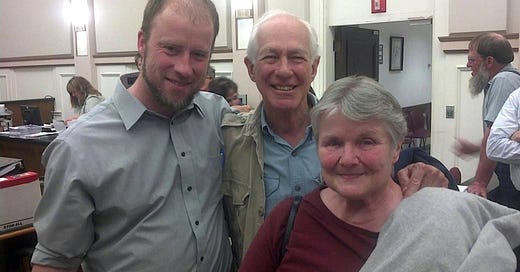



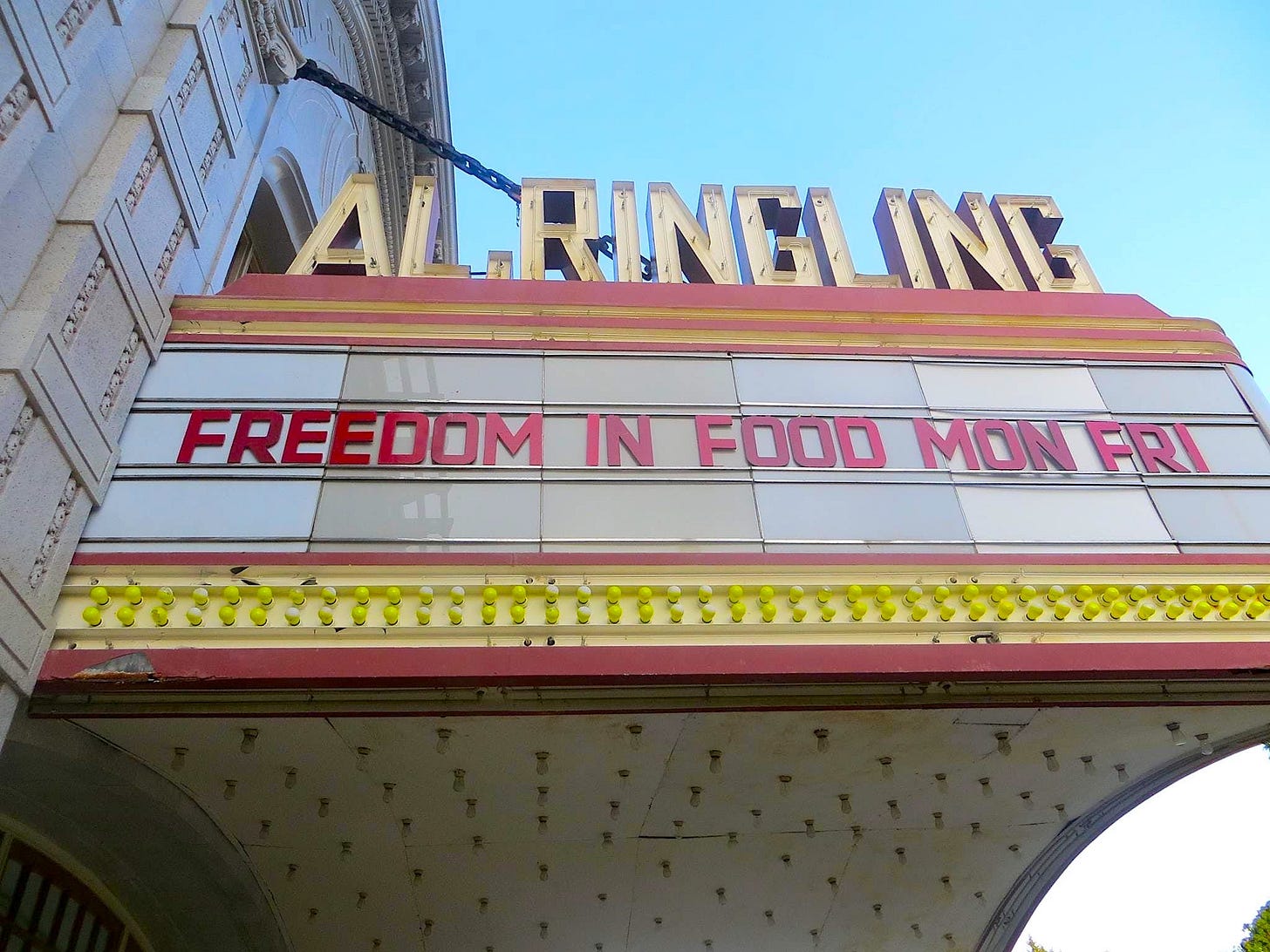
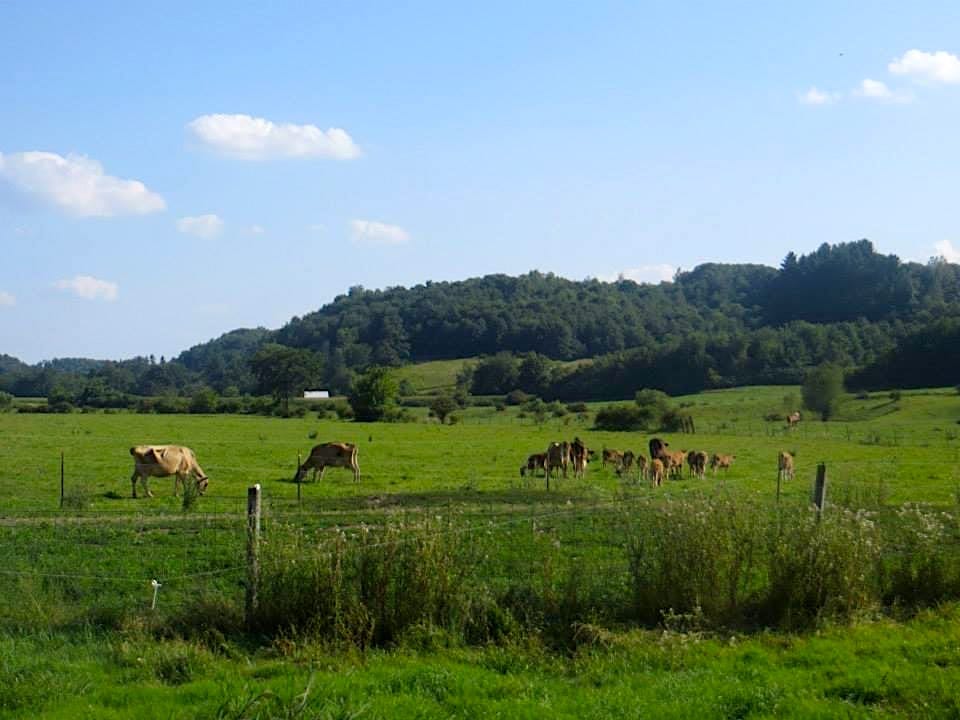
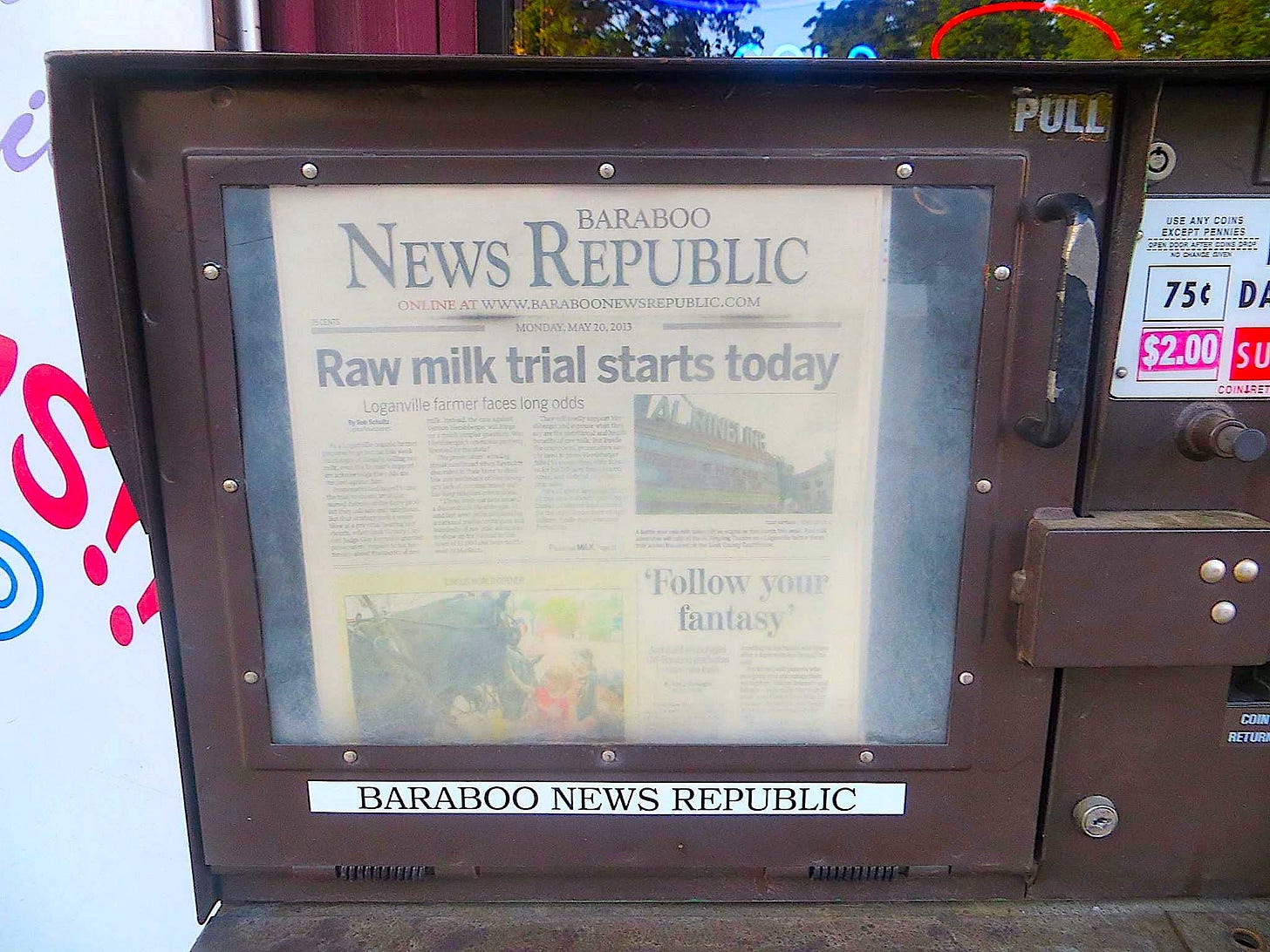
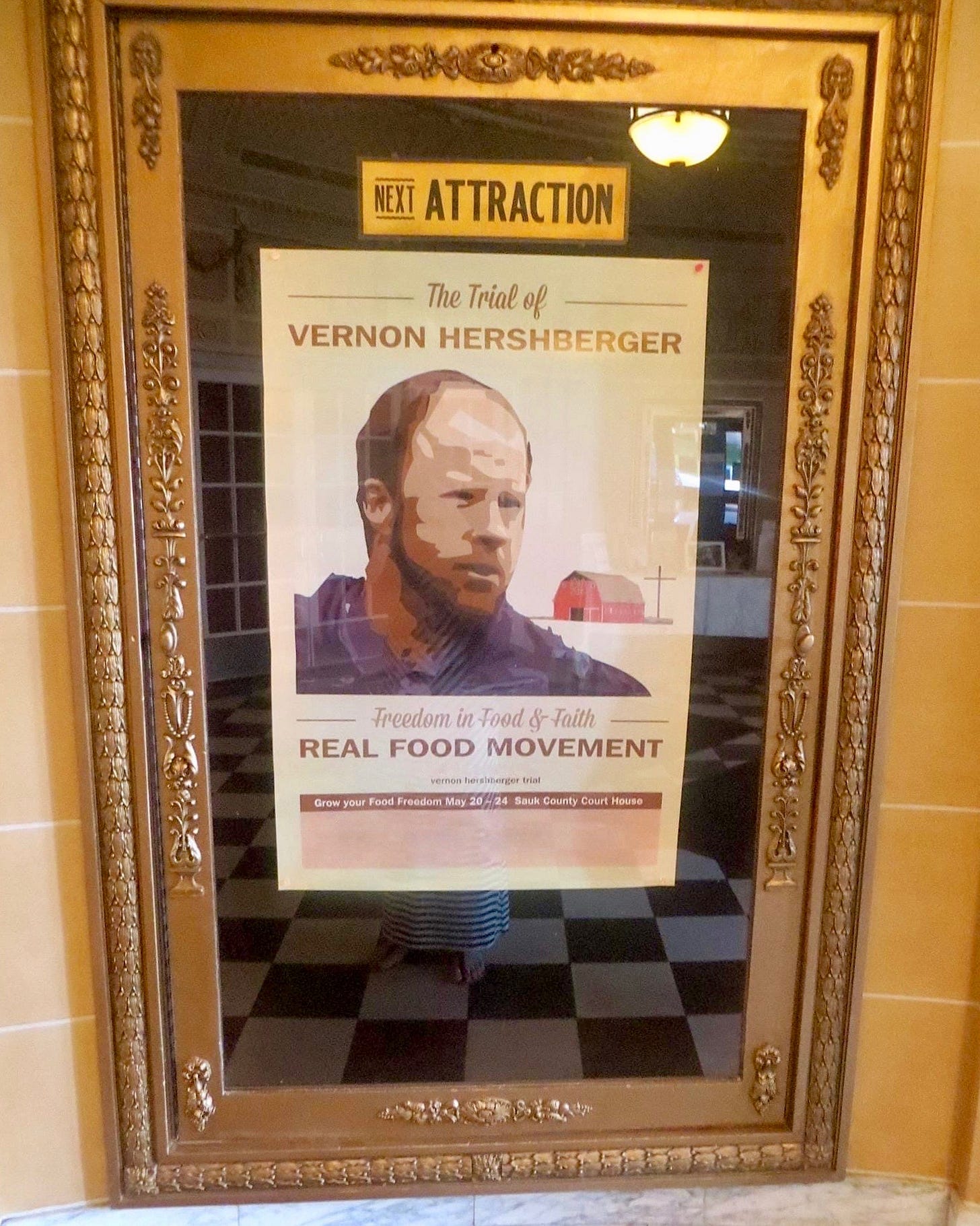
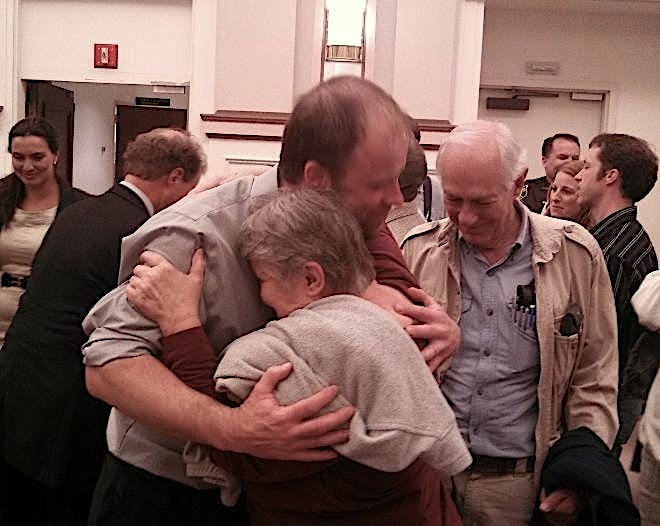

What an excellent read! Looks like the makings for a "based on true story" movie...
Great piece. Imagine LEO going after an honest food producer when all the criminals who sent them to arrest a righteous man are roaming the halls of power. Thanks for enlightening us to this case. Yes, a movie or video please!